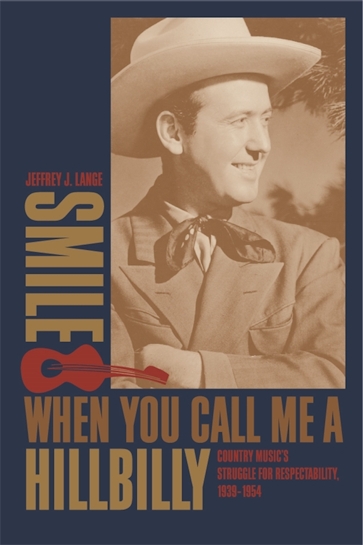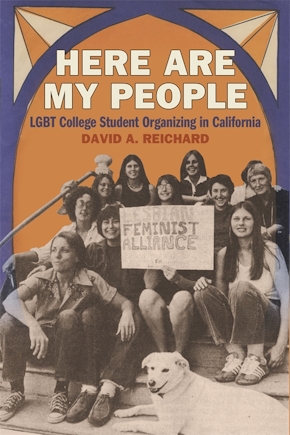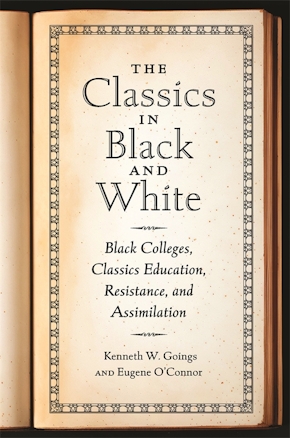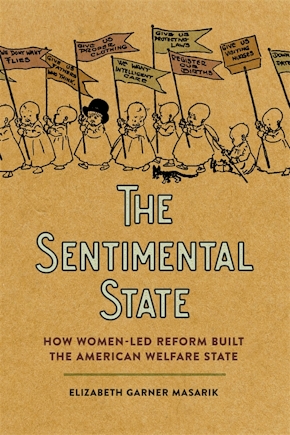Smile When You Call Me a Hillbilly
Country Music's Struggle for Respectability, 1939-1954
Title Details
Pages: 336
Illustrations: 8 b&w photos
Trim size: 6.000in x 9.000in
Formats
Paperback
Pub Date: 08/31/2004
ISBN: 9-780-8203-2623-8
List Price: $34.95
Hardcover
Pub Date: 04/01/2017
ISBN: 9-780-8203-5256-5
List Price: $93.95
Related Subjects
HISTORY / United States / 20th Century
Smile When You Call Me a Hillbilly
Country Music's Struggle for Respectability, 1939-1954
Skip to
- Description
- Reviews
Today, country music enjoys a national fan base that transcends both economic and social boundaries. Sixty years ago, however, it was primarily the music of rural, working-class whites living in the South and was perceived by many Americans as “hillbilly music.” In Smile When You Call Me a Hillbilly, Jeffrey J. Lange examines the 1940s and early 1950s as the most crucial period in country music’s transformation from a rural, southern folk art form to a national phenomenon.
In his meticulous analysis of changing performance styles and alterations in the lifestyles of listeners, Lange illuminates the acculturation of country music and its audience into the American mainstream. Dividing country music into six subgenres (progressive country, western swing, postwar traditional, honky-tonk, country pop, and country blues), Lange discusses the music’s expanding appeal. As he analyzes the recordings and comments of each of the subgenre’s most significant artists, including Roy Acuff, Bob Wills, Bill Monroe, Hank Williams, and Red Foley, he traces the many paths the musical form took on its road to respectability.
Lange shows how along the way the music and its audience became more sophisticated, how the subgenres blended with one another and with American popular music, and how Nashville emerged as the country music hub. By 1954, the transformation from “hillbilly” music to country music was complete, precipitated by the modernizing forces of World War II and realized by the efforts of promoters, producers, and performers.
Smile When You Call Me a Hillbilly is a very good summation of country music's history during the crucial years from 1939 to 1954. Lange does a particularly good job in exploring the tensions that accompanied the efforts made by entertainers and fans to create a musical product that would be both popular and roots-based. That struggle, of course, is still very much a part of the country music scene today.
—Bill C. Malone, author of Don't Get above Your Raisin’: Country Music and the Southern Working Class
A lively, readable collection of well-written and researched essays about Country Music within the context of America's history.
—Southern Scribe
[A] welcome and revealing book.
—David Cantwell, No Depression
Jeffrey Lange describes this cultural evolution with clarity and an abundance of detail.
—American Studies
Smile When You Call Me a Hillbilly ranks as the single most in-depth and detailed study of country music during World War II and the immediate postwar period, and as such, it is a welcome addition to the growing body of literature on the history of country music. Southern historians and country music scholars will appreciate Lange’s efforts.
—Atlanta History
This is a text that will serve as a valuable reference book for anyone interested in locating the details behind the performers and recordings that made country music popular during the World War II and post-World War II eras.
—Georgia Historical Quarterly
This clearly argued, well-researched addition to the scholarly literature on country music will appeal to scholars and fans of country music. Lange is sensitive to issues of race, class, and gender, and he provides a solid historical context for the forces that shaped country music's transformation between 1939 and 1954.
—Alabama Review
[Lange] wears his quantification lightly, a very pleasing attribute, and mirrors in a way the achievement of his subject: using modern methods without losing track of the story that forms the power of the phenomenon.
—Arkansas Historical Quarterly



